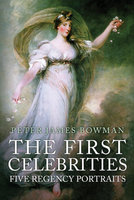New, Quality Gift Books - 50-90% off - over 2500 titles
Your basket is empty.
Categories War & Militaria FOR GOD AND GLORY: Lord Nelson and His Way of War
FOR GOD AND GLORY: Lord Nelson and His Way of War
Book number: 94359
Product format: Paperback
In stock
Bibliophile price
£4.50
Published price
£24.95
Customers who bought this product also bought
|
ULTIMATE THOMAS MAKE & DO
Book number: 94912
Product format: Paperback
Bibliophile price
£6.00
Published price
£17.50
|
BRIEF HISTORY OF THE ENGLISH CIVIL WAR
Book number: 95357
Product format: Paperback
Bibliophile price
£6.00
Published price
£8.99
|
2025 ANTIQUE MAPS A5 PADDED DIARY
Book number: 94264
Product format: Unknown
Bibliophile price
£3.50
|
|
2025 ANTIQUE MAPS SQUARE WALL CALENDAR
Book number: 94261
Product format: Unknown
Bibliophile price
£3.00
|
HONG KONG: Epilogue to an Empire FRANKLIN LIBRARY
Book number: 94935
Product format: Unknown
Bibliophile price
£20.00
|
FIRST CELEBRITIES: Five Regency Portraits
Book number: 95197
Product format: Hardback
Bibliophile price
£5.00
Published price
£22.99
|
Browse these categories as well: War & Militaria, Historical Biography







